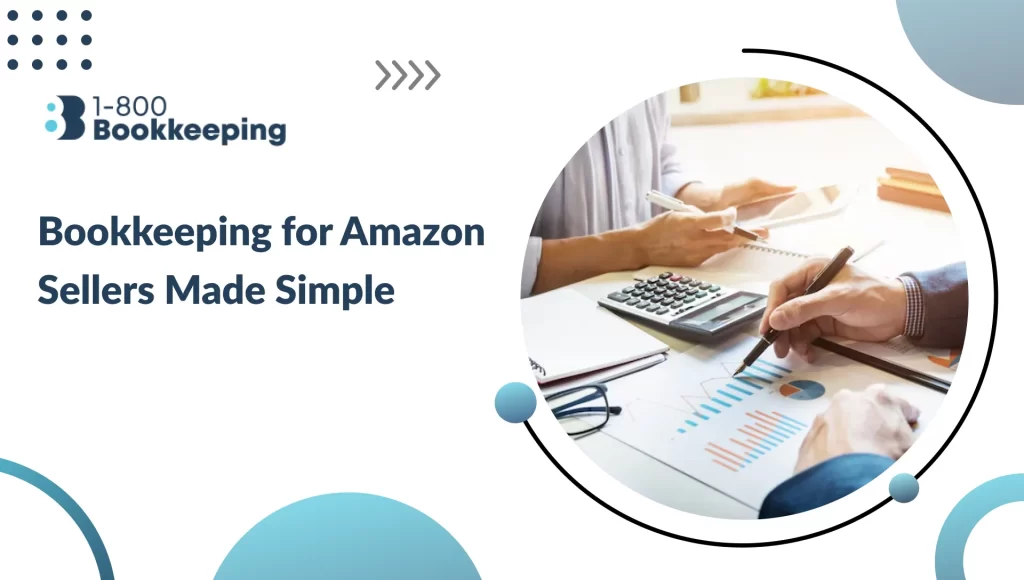Starting a business is exciting and challenging, and while there’s plenty to focus on, mastering accounting early can make a huge difference. From understanding the basics of bookkeeping to knowing what financial records to maintain, good accounting practices are essential for financial health and long-term success. This guide will provide clear, actionable tips to help startups build a strong financial foundation, streamline operations, and stay ahead of compliance requirements.
Why Is Accounting Important for a Startup Business?
Accounting is the backbone of any business, and startups are no exception. Here’s why accounting is crucial for a young business:
1. Financial Clarity and Stability
Without accurate accounting, startups can lose track of cash flow, quickly leading to financial missteps. Good accounting ensures you know where your money is going, helping you make better financial decisions, avoid overspending, and plan for growth.
2. Compliance with Tax and Legal Requirements
Proper accounting practices allow startups to comply with tax laws and regulations. Keeping accurate records makes it easier to file taxes correctly, reducing the risk of audits and penalties.
3. Budgeting and Forecasting
Accounting data is essential for setting realistic budgets and projections. With accurate financial data, startups can set achievable goals and map a clear path to financial growth.
4. Investor Confidence
Investors expect startups to have organized, transparent financial records. Good accounting practices can build trust, make it easier to raise capital and demonstrate that the business is on a solid footing.
Why Choose 1800bookkeeping for Startup Accounting
At 1800bookkeeping, we know that accounting is critical to running a successful startup. We also understand that many founders start with limited financial knowledge, resources, and time to dedicate to keeping their books in order. That’s where we come in. Our team is here to help startups lay a strong foundation for their finances so they can focus on growing their business with peace of mind.
Personalized Accounting for Startup Needs
From recording every transaction to preparing end-of-year tax documents, we offer accounting solutions tailored to the unique needs of startups. Our services include everything from basic bookkeeping to tax preparation, ensuring our clients stay compliant, organized, and ready for growth. With our team handling your finances, you can be confident that no detail is overlooked, and you’ll have clear, accurate records when it matters most.
Expertise That Saves Time and Money
Startups have enough on their plates without worrying about accounting complexities. Our team at 1800bookkeeping is experienced in startup accounting, meaning we’re familiar with the challenges new businesses face and ready with solutions that simplify and streamline your financial processes. From managing cash flow to setting up a budget that aligns with your goals, we take on the heavy lifting of your financial tracking, helping you avoid costly mistakes and keep more revenue in your business.
Support for Long-Term Growth
Our clients trust us to handle the day-to-day details and provide guidance that will support their long-term goals. We provide insights and tailored advice to help our clients make informed financial decisions as their startups evolve. Our team stays current on tax laws and regulations, which can make a huge difference for startups navigating complex tax requirements and searching for potential savings.
Get Started with 1800bookkeeping Today.
If you’re ready to give your startup a solid financial foundation, contact us at 1800bookkeeping. We’re here to ensure that your books are in order, your tax strategy is optimized, and your business is set up for success from day one. We aim to make accounting easy, efficient, and stress-free so you can focus on what you do best: building your business.
What Financial Records Should a Startup Have?
Maintaining well-organized financial records is vital for any startup. Here’s a look at the most critical documents:
1. Income Statements
An income statement tracks revenue and expenses over a specific period. It shows your profitability and helps you identify trends, seasonality, or changes in revenue and expenses.
2. Balance Sheets
A balance sheet provides a snapshot of your startup’s financial position at any given time. It lists assets, liabilities, and shareholders’ equity, helping you understand what your company owns versus what it owes.
3. Cash Flow Statements
Cash flow statements track how cash moves in and out of your business. This statement is essential for identifying liquidity issues and ensuring you have enough cash to cover operating expenses.
4. General Ledger
The general ledger is the main accounting record, summarizing all transactions. It’s the source for creating your financial statements; having it well-organized simplifies auditing and tax preparation.
5. Accounts Receivable and Payable Reports
Managing who owes you (accounts receivable) and who you owe (accounts payable) is key to healthy cash flow. Keeping up-to-date AR and AP reports helps you manage collections and payments efficiently.
6. Tax Documents and Receipts
Store all tax-related documents, including receipts for deductible expenses, to make tax time easier and ensure you don’t miss out on tax breaks.
What Are the Basics of Bookkeeping?
Effective bookkeeping is essential for a solid accounting foundation. Here’s a breakdown of the basic steps:
1. Record Every Transaction
Enter all financial transactions accurately, from revenue to expenses, including small costs like office supplies. These entries form the foundation of your financial records.
2. Organize Financial Records
Organize receipts and invoices by date, category, and vendor. Many startups use cloud-based software to keep digital copies, making retrieval easier during tax season.
3. Categorize Expenses Properly
Use standard categories for your expenses, like travel, utilities, payroll, and office supplies. Proper categorization helps with tax deductions and gives you a clearer view of where your money goes.
4. Reconcile Bank Statements
Compare your bank statements with your financial records regularly. This process, called reconciliation, helps you catch errors, identify fraudulent transactions, and maintain accurate records.
5. Track Accounts Receivable and Payable
Stay on top of invoices sent and received. Delays in collecting or making payments can disrupt cash flow, so keep a close watch on these accounts.
Benefits of Accounting for Startups
Proper accounting has many advantages for startups, from smoother daily operations to long-term profitability. Here are the main benefits:
1. Informed Financial Decisions
Accounting data provides insights into your spending patterns, revenue growth, and profit margins, allowing you to make informed decisions based on real numbers.
2. Better Cash Flow Management
Knowing your cash flow helps you identify when funds are available to invest back into the business or when to curb expenses. This awareness is critical for maintaining liquidity.
3. Tax Compliance
Good accounting keeps your business compliant with tax laws, ensuring that you’re prepared for tax filing and can avoid fines or audits.
4. Improved Investor Relations
If you’re seeking investment, accurate and organized financial records show that you’re managing funds responsibly, which can attract and reassure investors.
Bookkeepers vs. Accountants: What’s the Difference?
Understanding the difference between bookkeepers and accountants is crucial when outsourcing financial tasks.
1. Bookkeepers: Day-to-Day Financial Management
Bookkeepers record financial transactions, including sales, expenses, and payroll, daily. They focus on data entry, reconciliation, and maintaining accurate records for easy reference.
2. Accountants: Analyzing and Planning
Accountants review, interpret, and report on the financial data recorded by bookkeepers. They prepare tax returns, analyze trends, and offer strategic budgeting and financial planning advice.
While bookkeepers maintain accurate records, accountants analyze those records to help you understand your financial position and make strategic decisions.
Accounting Tips That Will Help Startups in the Long Run
Good accounting habits can set your business on a path to financial stability. Here are tips that can make a big difference:
1. Separate Business and Personal Finances
Open a dedicated business bank account and use it exclusively for business expenses. This separation simplifies accounting and protects your finances.
2. Track Every Expense
Keep a record of all business expenses, from small purchases to large investments. This habit helps with budgeting and ensures you don’t miss out on tax deductions.
3. Use Accounting Software
Invest in accounting software that fits your business needs. Programs like QuickBooks and FreshBooks simplify data entry, allow for easy report generation, and reduce the likelihood of errors.
4. Regularly Review Financial Statements
Set aside time each month to review your income, balance, and cash flow statements. This practice gives you a snapshot of your financial health and helps you identify trends.
5. Create a Budget and Stick to It
Budgeting helps startups control costs, prioritize spending, and ensure funds are available for essential expenses. Set realistic budgets based on historical data and current goals.
6. Plan for Taxes Throughout the Year
Set aside a portion of your earnings each month to cover taxes. This way, tax season won’t catch you by surprise, and you’ll avoid scrambling to gather funds for tax payments.
7. Consider Hiring a Professional
As your business grows, consider hiring a bookkeeper or accountant. A professional can manage your accounts, offer advice on tax strategies, and free up time for you to focus on other aspects of the business.
Closing Thoughts
Running a startup comes with plenty of challenges, but setting up good accounting practices can help you face them confidently. Whether tracking expenses, forecasting cash flow, or preparing for tax time, staying organized from day one can save you time, money, and headaches. Take charge of your startup’s finances to set the stage for sustainable growth. Ready to build your startup on a solid foundation? Start implementing these accounting tips today.
Feeling Overwhelmed by Bookkeeping? We Can Help.
Running a business is demanding, and keeping track of your finances can be a never-ending chore. Many business owners need help with the complexities of bookkeeping, which can leave them frustrated and behind.
1-800 Bookkeeping offers expert services to streamline your financial processes and empower you to make informed decisions.
Our team of seasoned professionals understands the unique challenges businesses of all sizes face. We can help you:
- Free Up Valuable Time: Offload your bookkeeping tasks to our dedicated professionals.
- Gain Peace of Mind: Ensure your financial records are accurate and up-to-date.
- Make Smarter Decisions: Get actionable insights into your business performance through clear and concise reports.
- Feel Confident: Make informed financial decisions based on reliable data.
Don’t let bookkeeping hold you back from achieving your business goals. Contact 1-800 Bookkeeping today for affordable bookkeeping solutions.
FAQs
1. What’s the best way to handle accounting as a startup?
It is key to start with simple accounting software and consistently record every transaction. You can also hire a bookkeeper to handle daily tasks.
2. How can startups minimize tax liability?
Track deductible expenses diligently, take advantage of any available tax credits, and consider working with a tax professional to create a strategy tailored to your business.
3. What’s the difference between cash and accrual accounting?
Cash accounting records transactions when money changes hands, while accrual accounting records them when earned or incurred. Consult an accountant to decide which method is best for your business.
4. How often should startups review financial statements?
Monthly reviews are ideal. Regular reviews help startups stay on top of cash flow, expenses, and profitability.
5. Can a startup manage accounting without professional help?
Many startups manage initially with essential software and diligent record-keeping. However, as the business grows, hiring a professional is often beneficial for tax planning and strategic financial advice.





